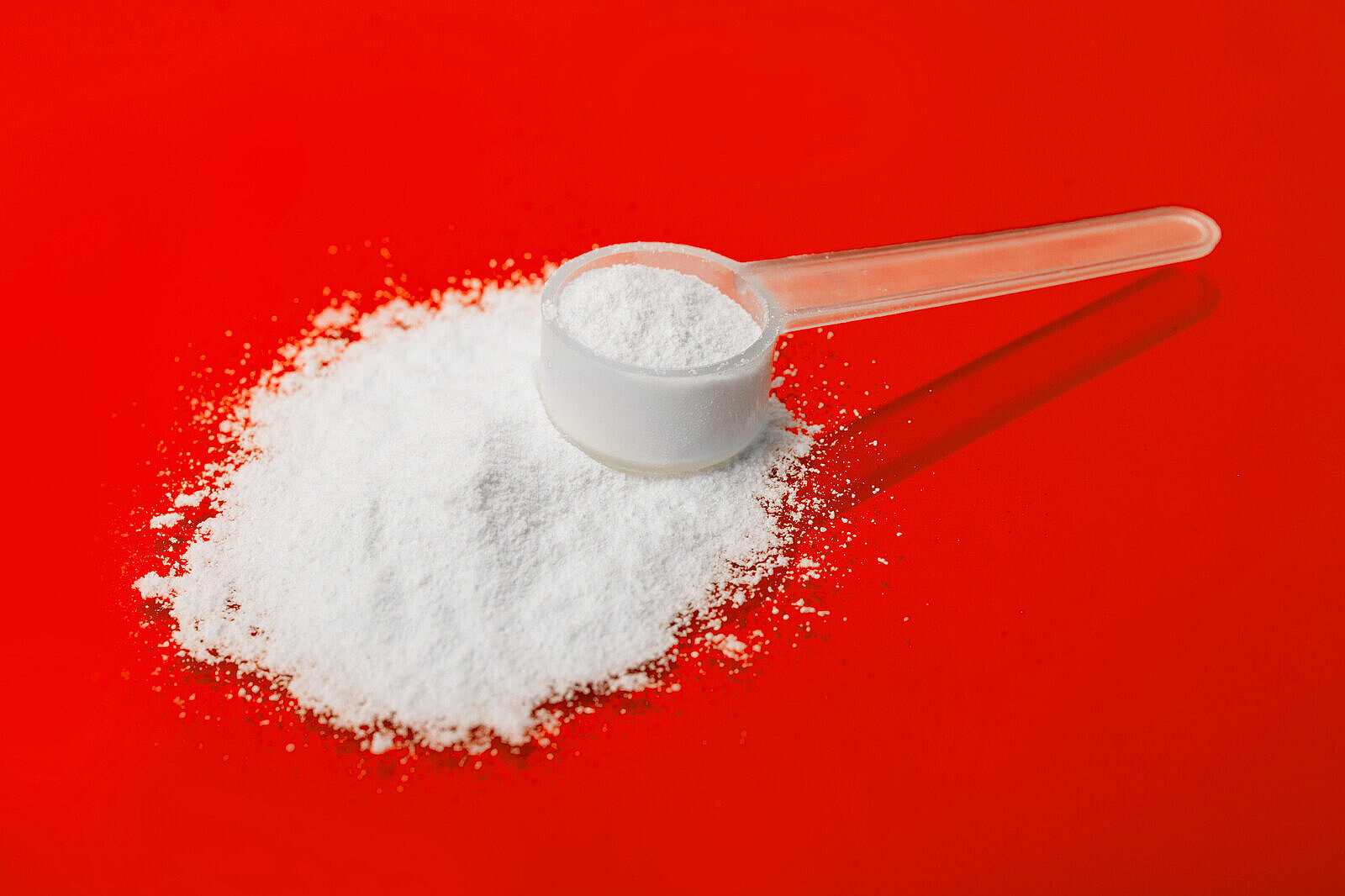Magnesium acetate

Magnesium acetate, a compound that may not be in the everyday vocabulary of dog owners, nevertheless plays a potentially important role in our dogs' health and nutrition. This article sheds light on what magnesium acetate is, examines its benefits and drawbacks for canine health, and provides a comprehensive overview for responsible dog owners who want the best for their furry friends.
What is magnesium acetate?
Magnesium acetate is formed when magnesium oxide reacts with acetic acid. This chemical compound is a popular ingredient in medicine and supplements because of its ability to provide magnesium. Magnesium is a vital mineral that plays a role in numerous physiological processes in dogs' bodies, including nerve and muscle function, bone health and metabolic support.
Benefits of magnesium acetate for dogs
Support muscle and nerve function
Magnesium is crucial for the proper function of muscle and nerve cells. It helps regulate the transmission of nerve signals and control muscle contractions, which is essential for a dog's overall mobility and well-being.
Promoting heart health
Magnesium helps to maintain normal heart rhythm and therefore supports heart health. An adequate supply of magnesium can help minimize the risk of certain heart diseases.
Strengthening bone health
Along with calcium and phosphorus, magnesium plays an important role in the development and maintenance of strong bones. This is particularly important for growing puppies as well as older dogs at risk of bone diseases such as osteoporosis.
Improving metabolic function
Magnesium is involved in numerous enzymatic reactions that are necessary for a healthy metabolism. Adequate magnesium intake can help promote energy metabolism and protein formation.
Disadvantages and risks of magnesium acetate for dogs
Risk of overdose
While magnesium is an essential mineral, overdosing can lead to health problems, including muscle weakness, cardiac arrhythmias and, in severe cases, kidney failure. The dosage of magnesium acetate must be carefully controlled.
Interactions with other medications
Magnesium acetate may interact with certain medications and affect their absorption and effectiveness. It is important to consult a veterinarian before administering magnesium acetate as a supplement, especially if the dog is already receiving medication.
Gastrointestinal side effects
In some cases, taking magnesium acetate can lead to gastrointestinal discomfort such as diarrhea. This is particularly likely if the mineral is administered in high doses.
A balancing act for health
Magnesium acetate can be a valuable addition to a dog's diet, provided it is used judiciously and under veterinary supervision. The potential benefits, such as supporting muscle and nerve function, promoting heart and bone health and improving metabolism, make it an attractive option for dog owners looking to optimize their four-legged friend's diet.
However, the use of magnesium acetate requires careful monitoring to avoid risks such as overdose, drug interactions and gastrointestinal side effects. With proper caution, magnesium acetate can be a safe and effective way to support your dog's health and quality of life.
If you notice any signs of hypersensitivity or poisoning in your dog, you should see your vet immediately. We are not a substitute for a vet, but we try to be as accurate as possible. Every dog reacts differently and we recommend you get a second opinion or consult your vet if in doubt.
Stay healthy and take good care of your four-legged friend!😊
Similar to Magnesium acetate
Calcium chloride is a salt that consists of two parts chlorine and one part calcium. It is a white, crystalline powder that dissolves easily in water. Calcium chloride has various properties that...
Sodium acetate (CH3COONa) is the sodium salt of acetic acid. It is a white, crystalline powder that dissolves easily in water and forms an alkaline solution. Sodium acetate is known for its...
Urinary stones are solid deposits of various substances that can form in the urinary tract of dogs. They can vary in size, shape and composition. The most common types of urinary stones in dogs are...
Your dog needs a sufficient amount of magnesium every day to stay healthy and productive. The recommended daily dose is around 10 to 12 milligrams per kilogram of body weight. Magnesium can be...



